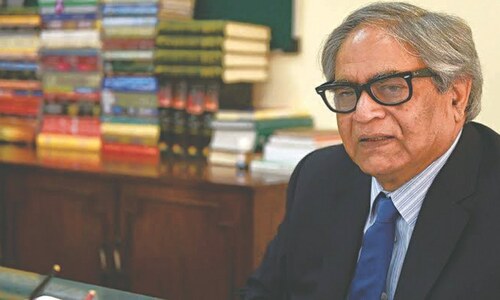The session titled ‘Contemporary Fiction at Home and the Diaspora’ had the tendency to be simultaneously intricate and controversial. The panelists, Muneeza Shamsie, Moni Mohsin, Nikita Lalwani and Nikesh Shukla, all did a remarkable job of courageously touching upon many facets — including sensitive ones — of the work of fiction writers at home and in the diaspora.
Karachi-based English-language poet, Salman Tarik Kureshi, moderated the session. Shamsie’s comments were crisp and terse, and she ended her talk with a question that left everyone present thinking: “Pakistani writers are expected to write about Pakistan only, and then they are critiqued for portraying stereotypes. This limitation should not be there.” She also asked her fellow panelists if “there a difference in [their] writing when [they] write away from home?”
Moni Mohsin, famous for her novel, The Diary of a Social Butterfly, took the thread forward and responded that she didn’t feel any different when [she] moved from Pakistan to England and started writing there. “I feel at home when I write,” she said. “I create a home in my writing and that is why I can simply say that I wrote a novel which was in me.”
Mohsin also spoke about how writers should be read as writers and not merely as Asian writers, the mindset because of which Pakistani writers are expected to write on specific topics such as the ‘war on terror’. Similarly, “their female characters need to be depicted as ‘exotic,’ sporting lehangas and eating mangoes! It amazes you to know what sort of power shopkeepers enjoy over publishers and writers when it comes to Pakistani writers. They are the ones who decide what kind of book cover and shelf will be given to a Pakistani fiction.”
Bringing the discourse back to the main theme of the day, it was novelist Nikita Lalwani who spoke of the similarities between one’s homeland and the place you move to. For her, “to produce a good piece of fiction it is not an absolute must that you have experienced everything; sometimes, simply knowing something is quite enough.”
Towards the end of the session, Nikesh Shukla, an Asian-British writer, who had been relatively quiet throughout the discussion, summed up his thoughts in a concise manner: “The cultural aspect in Asian-British writers’ work is very strong; partly because of their background, and partly because of what is expected of them. I believe any form of writing should come from within, without any external influence.”














































Dear visitor, the comments section is undergoing an overhaul and will return soon.